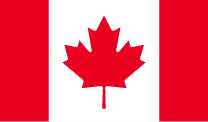Explore by career outcomes
Geologist
Average salary
-
$120,800 AUD
-
£51,635 GBP
-
$60,457 USD
-
$65,456 NZD
-
$84,537 CAD
-
$35,972 EUR
Select destination
Clear
Clear
Unsure where to start? Get end-to-end study abroad assistance, for FREE!
Help me decideThis feature is coming to you soon, meanwhile you can get in touch for a free counseling session with our expert
Speak to our counsellor
Get in touch for a FREE COUNSELLING SESSION.














Share university
Link to share
Link copied